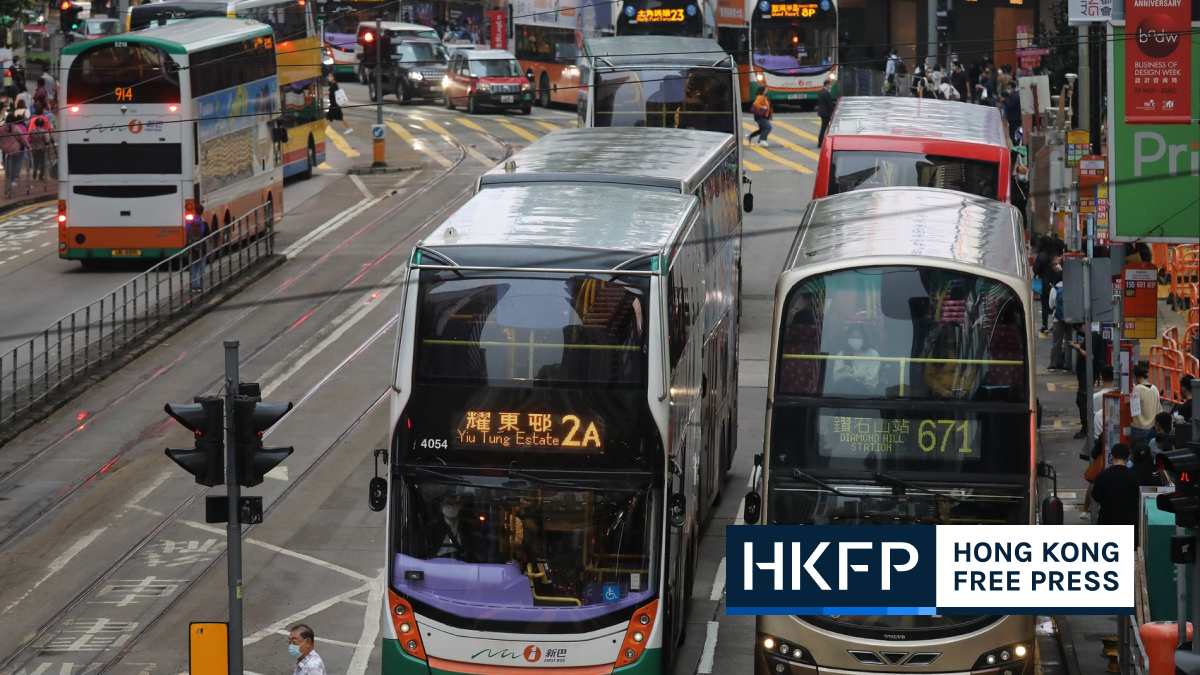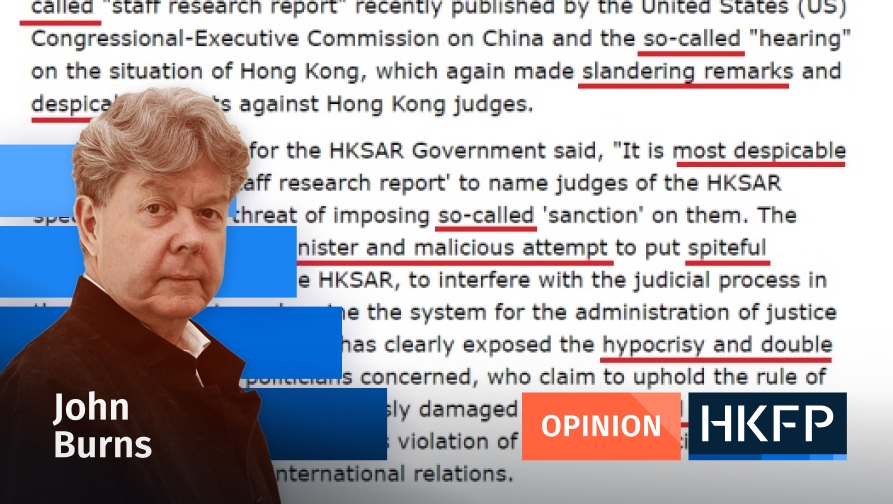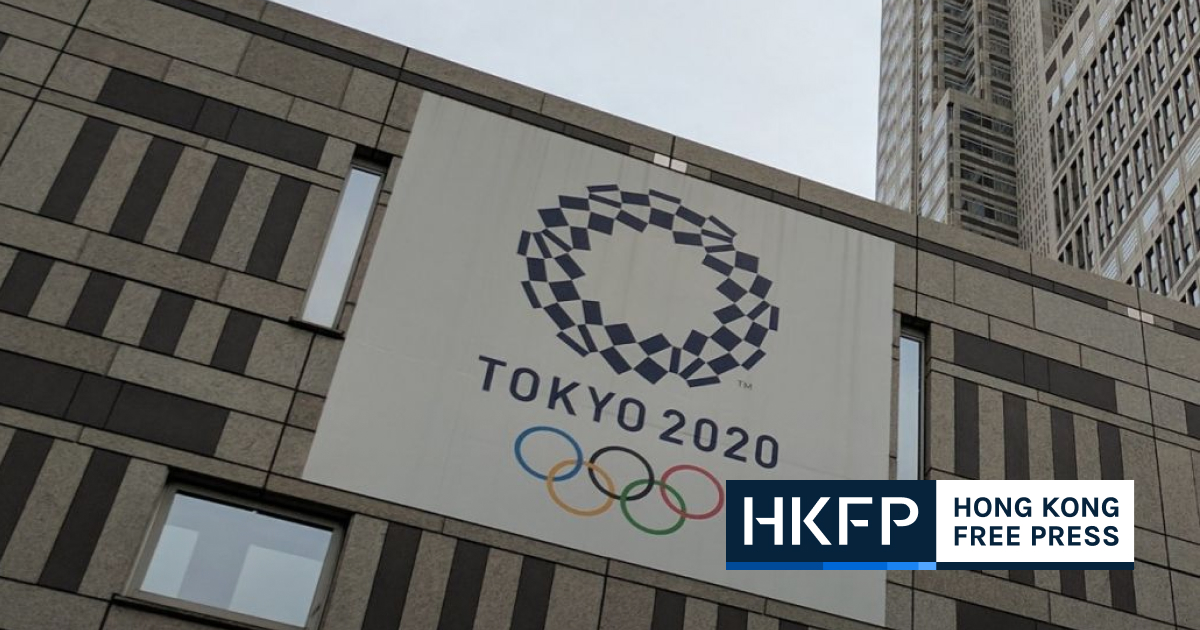At a busy intersection in Prince Edward on Saturday, a bicycle placed on the roadside caught the eyes of passers-by. Completely covered in white paint, it sat hauntingly beside a bunch of white silk flowers and a plastic card which read: “In memoriam Mr Yuen-cheung, 68.” It included the date and time of the road accident that had claimed the cyclist’s life.
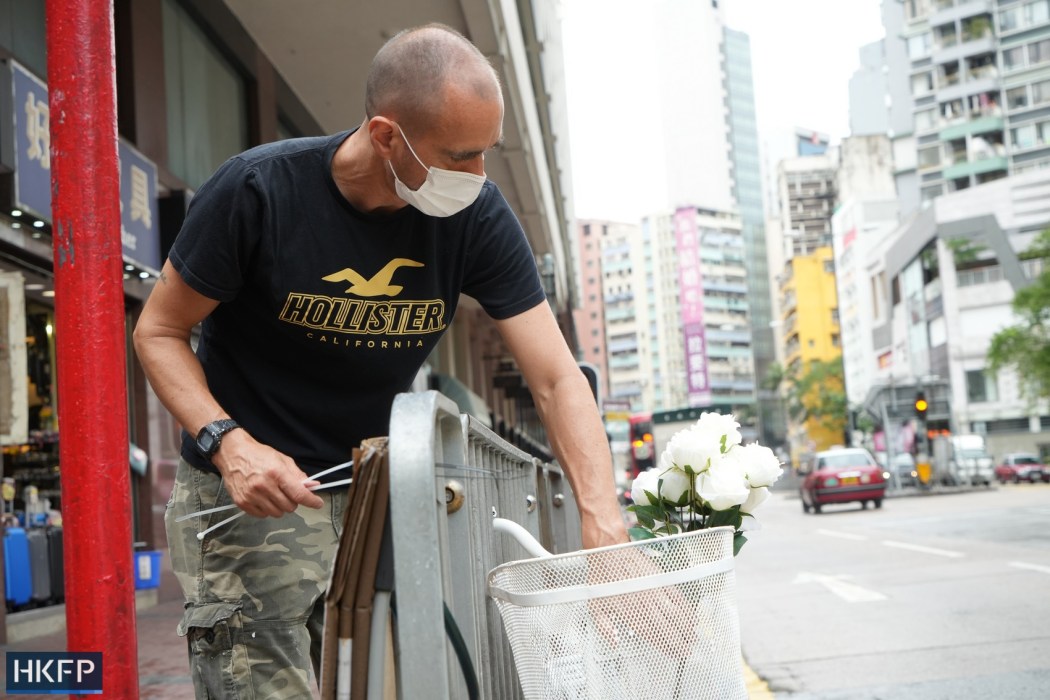
Placed at the sites of fatal accidents, James Ockenden’s “ghost bikes” project honours eight riders who lost their lives on Hong Kong’s roads last year.
“I think it is important to remember that people were just getting around with a bicycle like this,” the sole organiser of the campaign said. He added that those killed were not racing, “they are people getting around in an easy and environmental-friendly way, and we should be supporting that as a community.”

According to the Transport Department, there were 3,249 traffic accidents involving bicycles last year – a more than 50 per cent increase from the 2,061 recorded in 2017. Meanwhile, there were an average of 11.4 cyclist road deaths between 2016 and 2020, according to the police Traffic Annual Reports.
Ockenden told HKFP that casualties often went under the radar of local media: “If it happens in a remote area, or the guy didn’t have many friends, or social media, then probably it will just go completely forgotten,” he said.
He added that local English-language media outlets generally only pay attention to large incidents such as last August’s Tai Po taxi crash, or accidents that happened to expats – “most English media hasn’t covered any of these cycle deaths.”
As a founder of Transit Jam, a local publication dedicated to covering transportation issues and traffic accidents, Ockenden said he often writes about 40 to 50 road deaths a year. He said he felt that every case was “tragic” and “a pointless loss of life.”
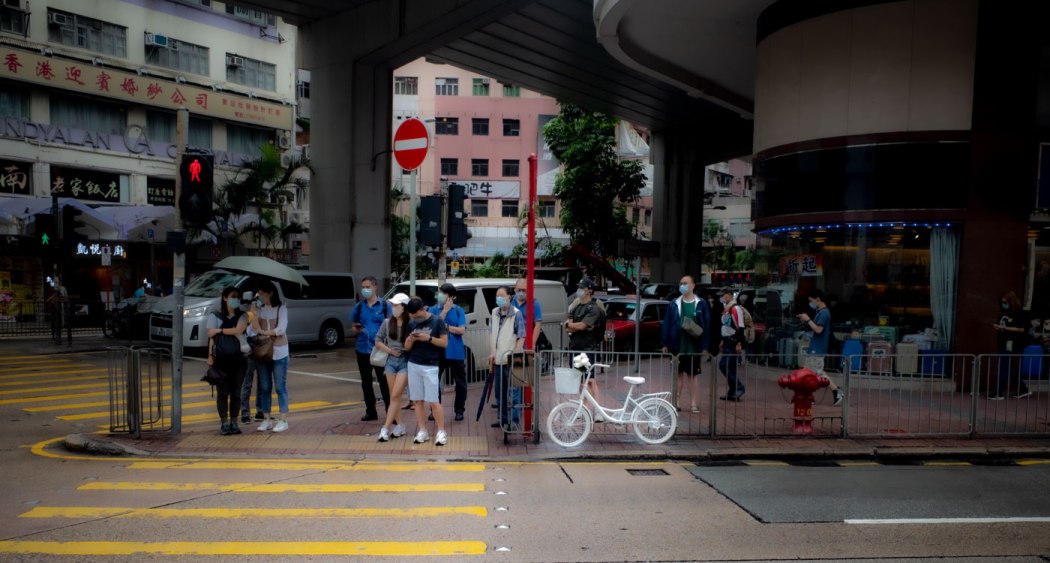
Ockenden said that most of the deceased were vulnerable groups in society, such as elderly people over 60.
‘Vehicle-first mentality’
When Ockenden was setting up his exhibit on the busy street of Prince Edward, the stunt caught the attention of Mr. Yiu, a 66-year-old retiree.
Yiu told HKFP that he was a driver himself, and – while he understood that the campaign was in memory of deceased cyclists – he thought it was too dangerous to cycle on Hong Kong roads. “Hong Kong is not a suitable place for cycling,” the passer-by said, adding that he was sometimes worried about crashing into cyclists when driving.

HKFP translated Yiu’s remarks to Ockenden, who said it was an example of how the government’s “vehicle-first mentality” had affected the public’s attitude towards cyclists.
Ockenden said the government “always puts cars first,” and that was a bigger problem than the lack of infrastructure, such as protected cycling lanes.
“If you ask [the] Transport Department about cycling, they will say cycling is not suitable for urban areas – and that is probably the only developed city in the world that would say that.” Ockenden said. He said this fosters an attitude whereby drivers get angry about cyclists taking up space on roads.
“I think the first step for the government is to recognise cycling as a legitimate form of transport, not just a sport… then that will start to change attitudes, and cultures.”

Citing the government’s “prudent attitude” on road safety, former transport chief Anthony Cheung said in 2017 that the government does “not encourage the public to use bicycles as transportation on the busy roads [of] the urban area.” Rather, bikes are for “short-distance travel” only.
Also, Ockenden told HKFP that the speed limit was “much too high” in urban areas of Hong Kong: “If you take the speed limit down to 30 kilometre per hour, cycling will be much safer – you don’t necessarily need infrastructure.”
Individual activism
Another reason for the solo campaign was that the “Ride of Silence” was cancelled this year. The annual international bicycle ride pays tribute those killed or injured when cycling on public roads.

The ride had been held in the city on the third Wednesday of May for 16 years. But Ockenden said that, at the memorial event last year, the police accused participants of violating Covid-19 social distancing rules and ticketed all of them.
After the event, police told local media that officers had found participants gathering near the Tsim Sha Tsui clock tower that night and had issued penalty notices to 15 individuals.
Ockenden said he felt that people would become a “much bigger target” if they are gathered as a group under the current pandemic and national security laws: “I hope what we’ll see is individuals stepping up to do things like this, and take over that role in civil society,” he added, with reference to his “ghost bike” memorial campaign.
“I think you can only do this solo now.”
Support HKFP | Policies & Ethics | Error/typo? | Contact Us | Newsletter | Transparency & Annual Report | Apps
Help safeguard press freedom & keep HKFP free for all readers by supporting our team

LATEST FROM HKFP
HKFP has an impartial stance, transparent funding, and balanced coverage guided by an Ethics Code and Corrections Policy.
Support press freedom & help us surpass 1,000 monthly Patrons: 100% independent, governed by an ethics code & not-for-profit.




